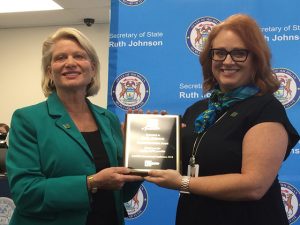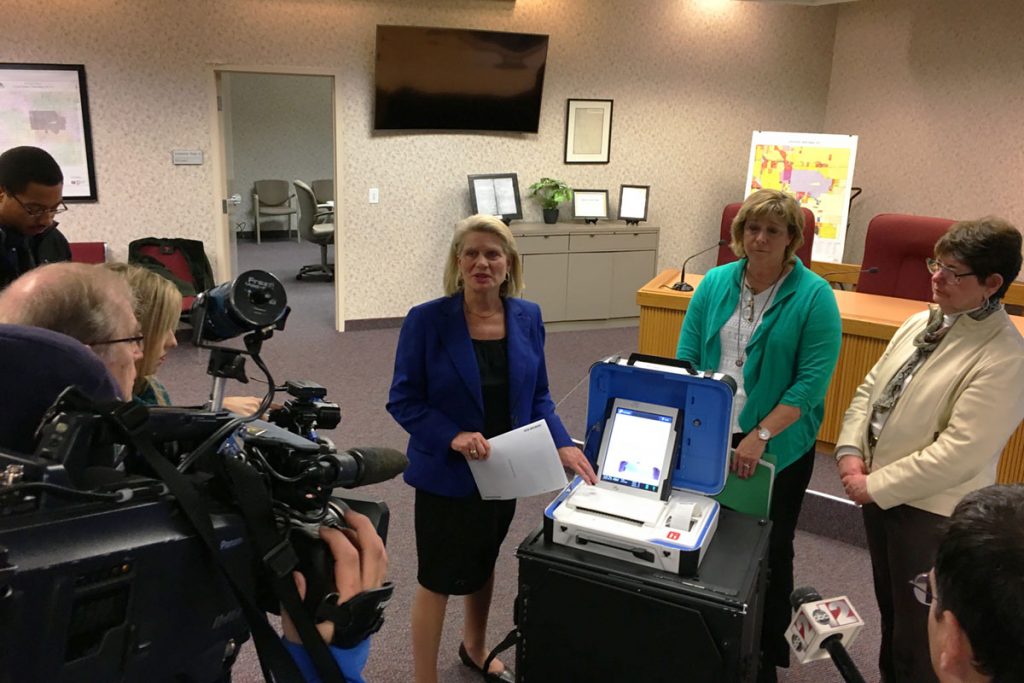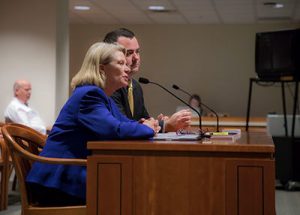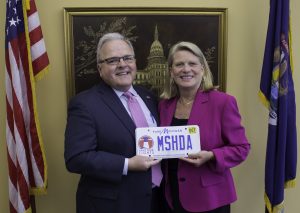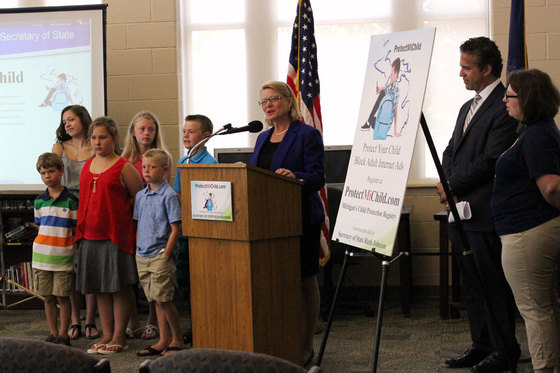Plaintiffs agree to drop all claims challenging U.S. Congressional, state Senate districts as part of agreement
January 25, 2019 – Michigan Secretary of State Jocelyn Benson today reached an agreement with the League of Women Voters regarding their claims challenging the constitutionality of the 2011 redistricting of Michigan’s state legislative and U.S. Congressional districts.
As part of the agreement, the plaintiffs agreed to drop all claims challenging the constitutionality of the Michigan state Senate and U.S. Congressional districts, as well as claims against four state House districts. The proposed settlement concludes that 11 of the 110 state House districts were drawn in violation of the U.S. Constitution. The agreement gives the current state Legislature the opportunity to redraw the districts for submission to the court.
“As the state’s chief election officer, I have a responsibility to ensure our elections operate in a manner that is fair, accessible and in compliance with the constitutional mandate of one person, one vote.” Benson said. “I believe today’s settlement strikes a balance between recognizing the unconstitutionality of the 2011 districting maps while reaching a remedy that is limited in scope and impact given the length of time these districts have been in place. Because the Congressional and state Senate maps will not be changed, and the state House map only minimally changed, the remedy we have proposed to the court is one that is likely more limited in scope than that which could have emerged from a trial that the state could likely lose. It strikes an important balance between limiting disruption to the current maps while acknowledging the harm done to voters through attempts to rig the outcomes of elections through partisan gerrymandering.”
Judges Eric Clay, Denise Page Hood and Gordon Quist of the U.S. District Court for the Eastern District of Michigan Southern Division will rule on the consent decree.
The 11 state House districts that would be redrawn under the agreement are 24th, 32nd, 51st, 55th, 60th, 63rd, 76th, 91st, 92nd, 94th and 95th. The new districts would use the same population data relied upon in the maps drawn in 2011, which remain the most recent complete Census data. They will be in place only for the 2020 elections, after which new districts will be drawn by the Citizens Redistricting Commission that voters enacted into law via ballot petition in November 2018.
The League of Women Voters sued the state of Michigan on Dec. 22, 2017, challenging the constitutionality of the 2011 redistricting process, saying the districts had been drawn with partisan intent in violation of the Equal Protection Clause and First Amendment of the Constitution. On Jan. 2, Benson, as the new secretary of state, became the named defendant in the lawsuit.
“I am very glad that moving forward we will have in place an independent citizen redistricting commission to draw future Congressional and legislative maps following the 2021 census,” Benson said. “As a longtime advocate of citizen involvement in redistricting as a solution to end efforts to rig districts to encourage particular partisan outcomes, I will now turn to implementing the commission in a way that is transparent, nonpartisan and effectively engages citizens across the state in the important task of drawing legislative districts that comply with state and federal law.”


